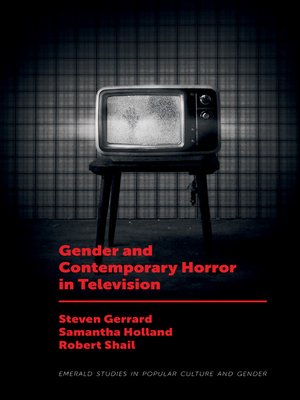Gender and Contemporary Horror in Television
ebook ∣ Emerald Studies in Popular Culture and Gender
By Steven Gerrard

Sign up to save your library
With an OverDrive account, you can save your favorite libraries for at-a-glance information about availability. Find out more about OverDrive accounts.
Find this title in Libby, the library reading app by OverDrive.



Search for a digital library with this title
Title found at these libraries:
| Library Name | Distance |
|---|---|
| Loading... |
The successful return of horror to our television screens in the post-millennial years, and across a multi-media range of platforms, demonstrates that this previously moribund genre is once again vibrant, challenging and long-lasting. The traditional TV audience of the past would have watched very few horror TV shows, because not many were made. But that has changed. Programme makers have tapped into their public's insatiable need - in these days of terrorism, violence and mayhem - to provide programmes that have high production values, engaging storylines, and plenty of frights and gore. Horror TV offers a safety-valve for its audience, one that enables them to enter into it from the safety of their armchairs. The era of instant access, streaming, downloading and binge-watching whole seasons over a weekend, where fandom has blossomed into a cultural force, clearly shows horror as a vital part of today's TV scheduling.
This edited collection investigates the rising popularity of horror-television through deconstructing the gender roles within them via series of case studies including such programmes as Hannibal, American Horror Story, The Walking Dead, Penny Dreadful, Supernatural, The Exorcist and Bates Motel. By using a series of case studies and employing theoretical modes of close analysis, each chapter demonstrates how and why these TV shows are important in reflecting the changing gender roles within modern society.







